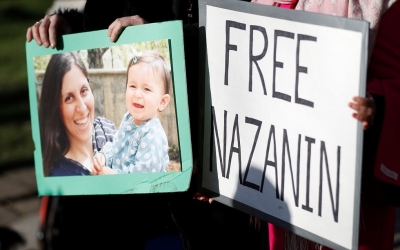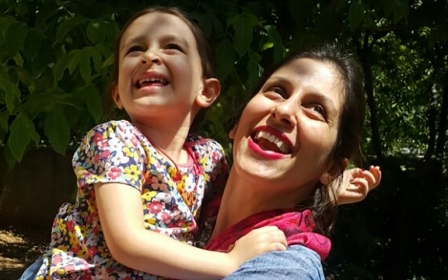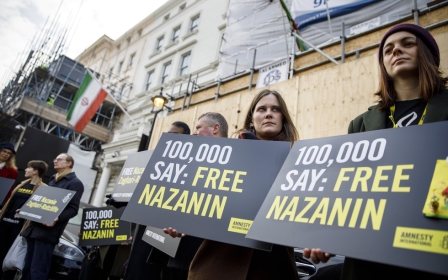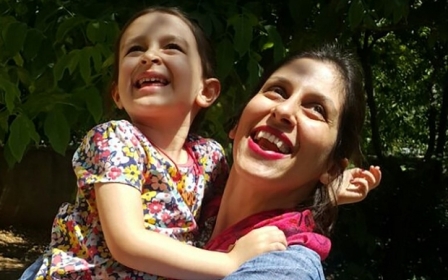British-Iranian aid worker moved back to Iranian prison after 'torture' in hospital ward
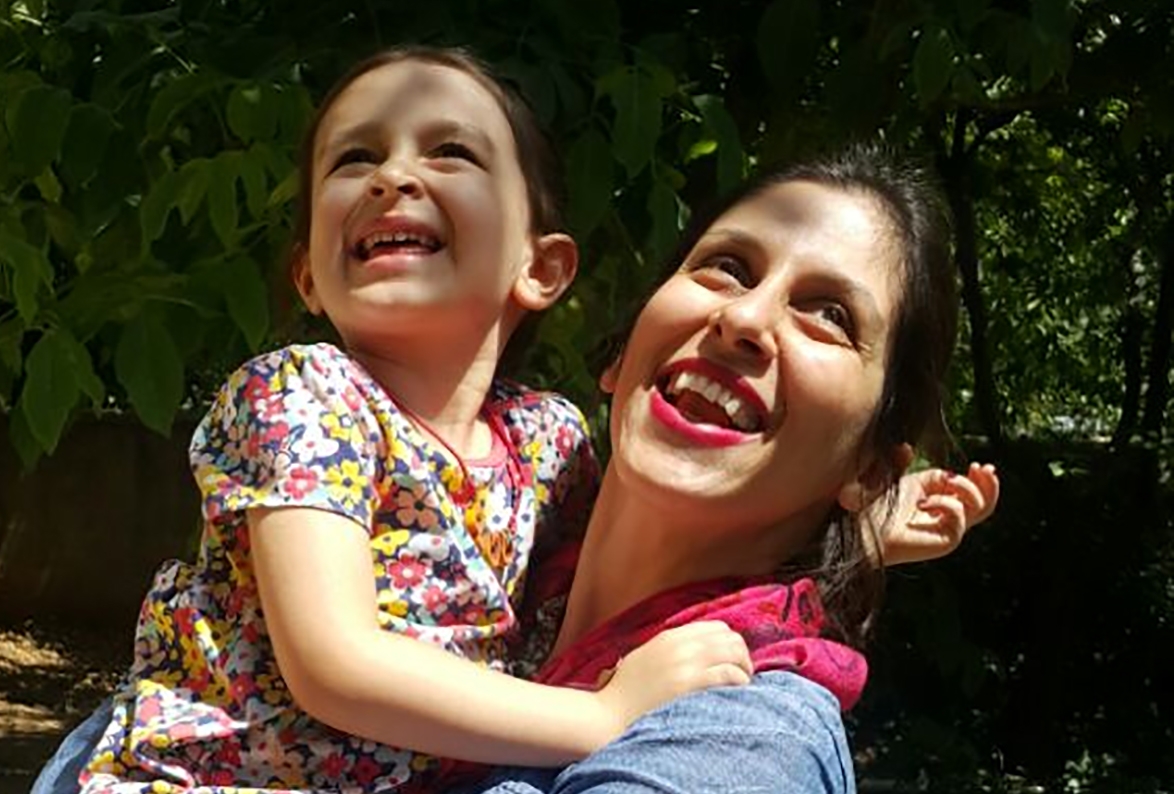
British-Iranian aid worker Nazanin Zaghari-Ratcliffe has been transferred back to an Iranian prison from a hospital psychiatric ward, her husband said in a statement.
Zaghari-Ratcliffe was sent back to Evin Prison in Tehran on Monday, according to a statement released by the "Free Nazanin" campaign group run by her husband, Richard Ratcliffe, and seen by Reuters news agency.
She had been moved to the psychiatric ward of Tehran's Imam Khomeini hospital on 15 July.
According to the statement, Zaghari-Ratcliffe was discharged from the hospital at her and the hospital doctor's request, after undergoing what she described as "proper torture".
"They did all they could to me – handcuffs, ankle cuffs, in a private room 2x3m, with thick curtains, and the door closed all the time. I wasn't allowed to leave the room, as I was chained to the bed. It was proper torture," the campaign's Facebook page quoted Zaghari-Ratcliffe as saying.
Zaghari-Ratcliffe was told she had been admitted to hospital for a 10-day period of assessment, Reuters reported.
"It was tough, and I was struggling. But I am glad I survived. The original order was for 10 days. I managed to survive for six. I think it was an achievement," she continued in the statement.
Zaghari-Ratcliffe, a project manager with the Thomson Reuters Foundation, was arrested in April 2016 at a Tehran airport as she headed back to Britain with her daughter after a family visit.
She was sentenced to five years in jail after being convicted of plotting to overthrow Iran's clerical establishment, a charge denied by her family and the Foundation, a charity organisation that operates independently of Thomson Reuters and Reuters news agency.
When asked about Zaghari-Ratcliffe's case on Monday, British Foreign Minister Jeremy Hunt called her transfer back to prison "extremely shocking".
"We hoped and I think she probably hoped that it might be good news that she was being transferred to hospital for help with some of her medical conditions, but it now looks like that wasn't the case," Hunt said in parliament on Monday.
The foreign minister added that Zaghari-Ratcliffe's imprisonment is a recurring topic in conversations with his Iranian counterpart Mohammad Javad Zarif.
"Every time I talk to the Iranian foreign minister Zarif, I bring up Nazanin's case," Hunt said.
Hunt also highlighted the importance of not linking Zaghari-Ratcliffe's case to rising tensions between the British and Iranian governments, which escalated over the weekend after Iranian forces seized a British-flagged tanker in the Strait of Hormuz.
In March, Britian's Foreign Ministry announced plans to give Zaghari-Ratcliffe diplomatic protection in an attempt to put pressure on Iran to release her.
But Iran's ambassador in London, Hamid Baeidinejad, said Iran would not recognise such protection since Zaghari-Ratcliffe is an Iranian citizen.
"As UK Govt is acutely aware, Iran does not recognize dual nationality. Irrespective of UK residency, Ms Zaghari thus remains Iranian," Baeidinejad tweeted.
In January, Zaghari-Ratcliffe went on hunger strike for several days in protest at her treatment in jail.
That same month, The Guardian reported that she had been denied medical attention for lumps in her breasts, as well as neck pains and numbness in her arms and legs, despite being referred by the prison doctor for specialist treatment for both.
Middle East Eye delivers independent and unrivalled coverage and analysis of the Middle East, North Africa and beyond. To learn more about republishing this content and the associated fees, please fill out this form. More about MEE can be found here.


